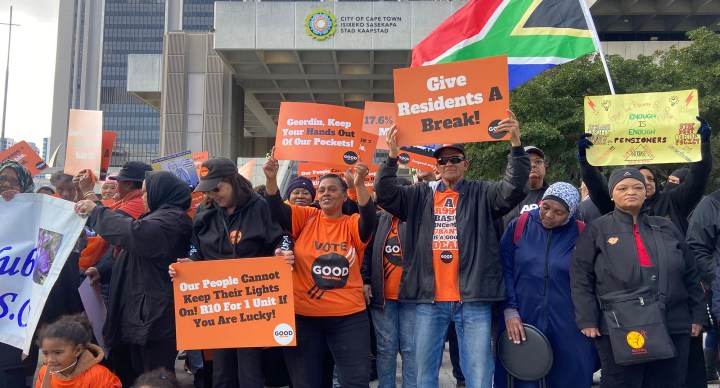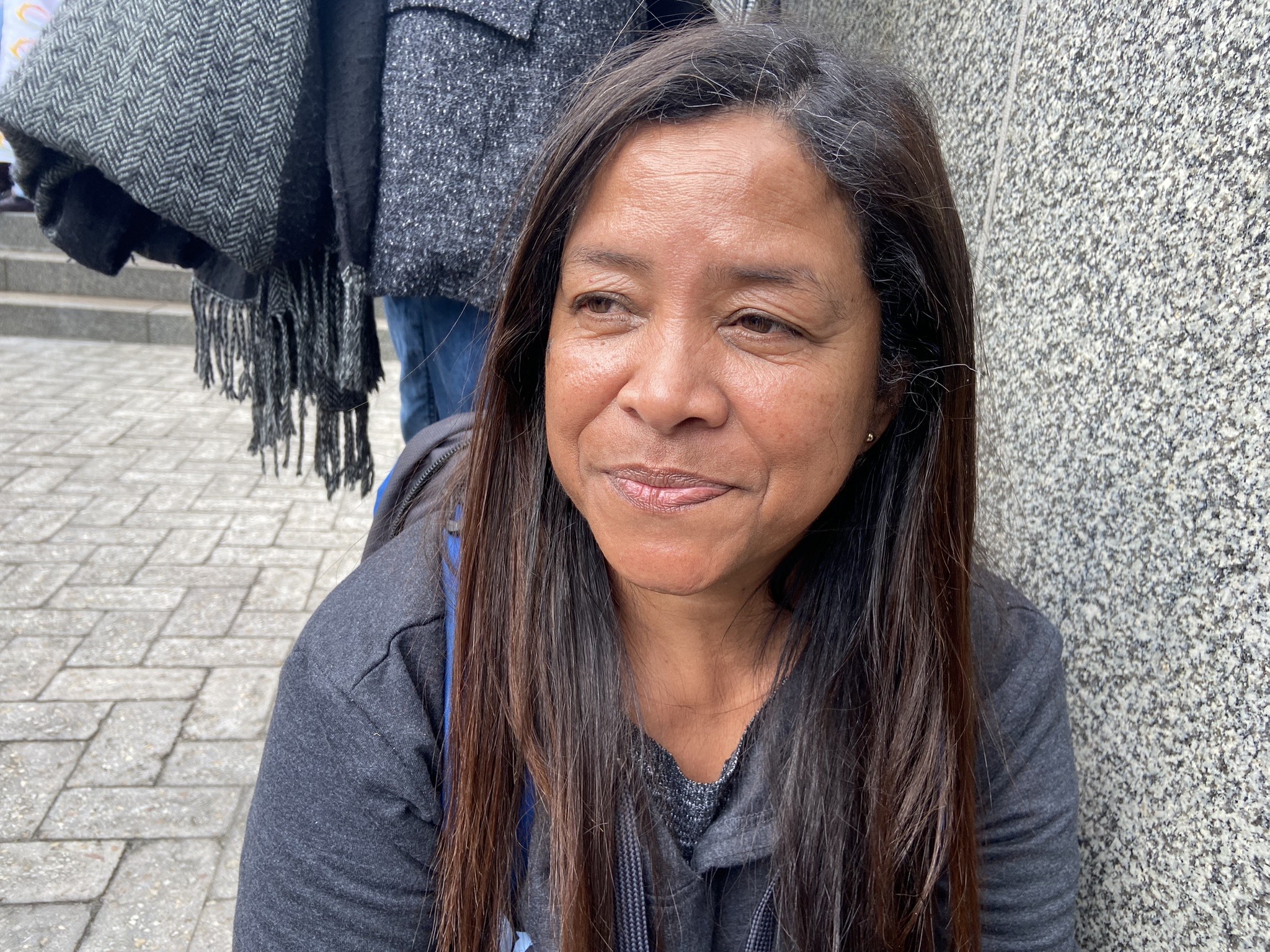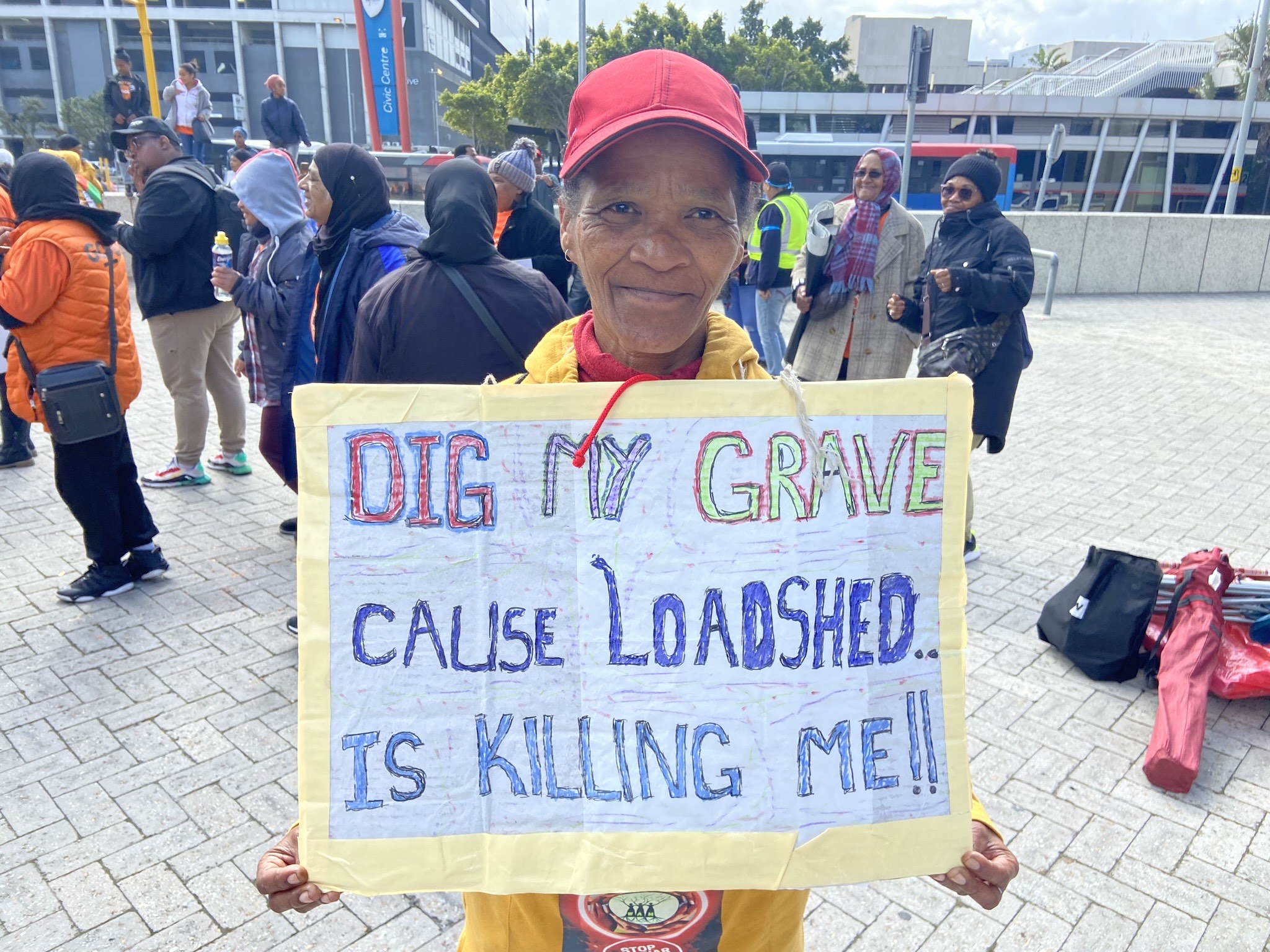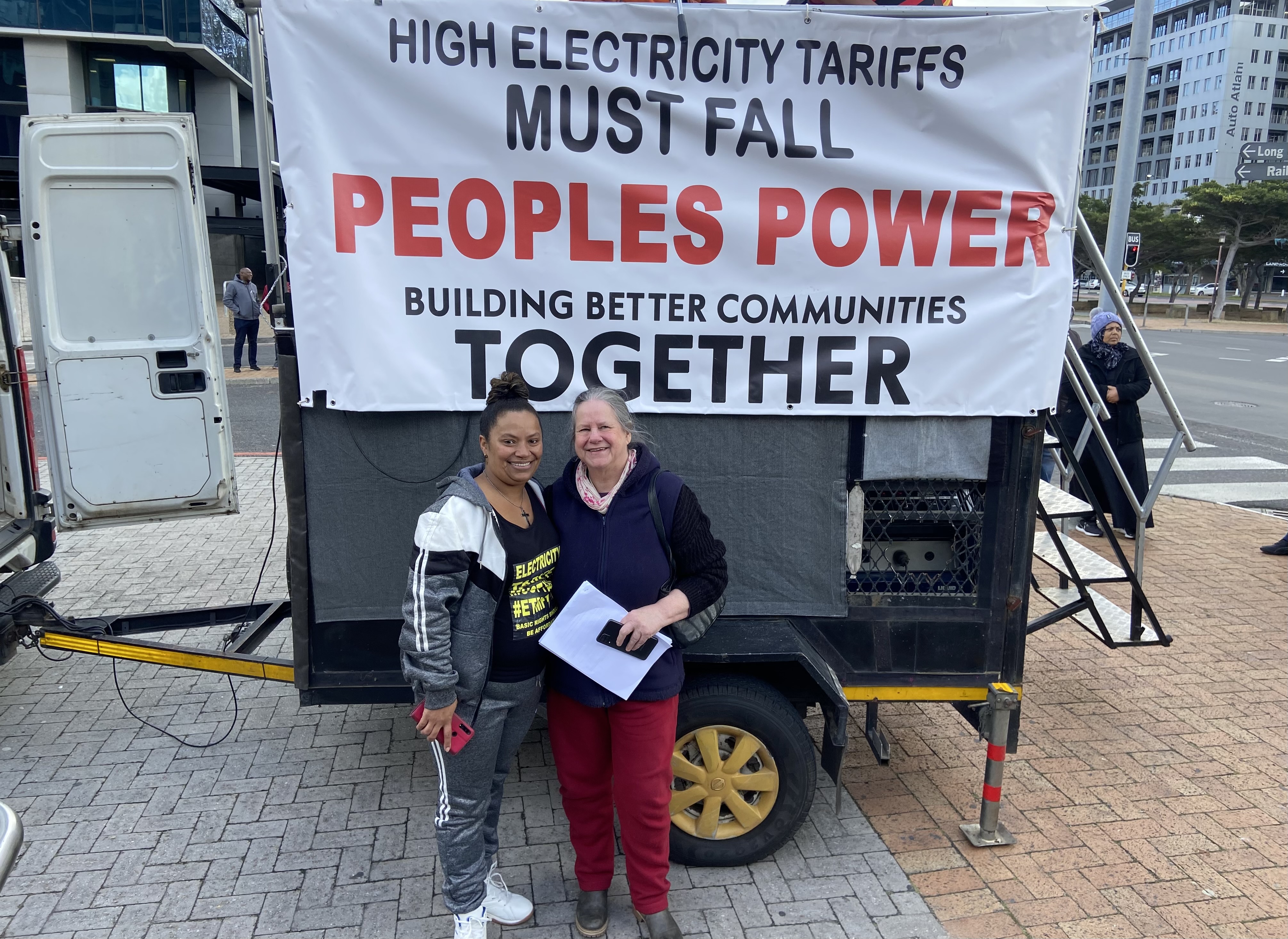TARIFF DISCONTENT
Capetonians take to the street to voice their grievances about the 17.6% rise in electricity prices

Cape Town residents protest against a significant increase in power prices, claiming it has put a strain on their finances, especially for the elderly and the poor.
Cape Town residents took to the streets on Saturday, 26 August, to protest against the City of Cape Town’s 17.6% electricity tariff increase, which came into effect on 1 July.
Following the implementation of the electricity tariff hike, numerous residents lodged complaints with the city.
More than 100 residents gathered at the Civic Centre on Saturday to hand in a memorandum to the officials from the Mayor’s office.
The primary objective of the protest was to deliver the memorandum and get the city to cut its 2.5% percentage point hike in line with the National Energy Regulator of South Africa Nersa’s (Nersa’s) 15.1% requirement.
The memorandum consisted of 15 demands. These included:
- Amend the 17.6% it added to electricity tariffs on 1 July 2023 to the correct Nersa figure of 15.1%;
- Remove the 37.6 cents added to each unit bought and cease subsidising the rates department by taking 10% from electricity revenue;
- Remove electricity block tariffs and link to property values;
- Automatically give pensioners rebates which must include free units similar to those given to the indigent; and
- Stop prepaid deductions after an arrangement was made.
The protest was organised by #STOP COCT and Electricity Tariffs Must Fall and attended by more than 20 lobby groups.
Anger and dissatisfaction in the city over municipal bills have been growing. As part of their complaints, residents demanded that the City’s debt collection policies be immediately changed and the exorbitant tariffs be scrapped.

Zerina Calvert (53), a single mother from Grassy Park, says she struggles to make ends meet on her minimal salary. (Photo: Samane Jnr Marks)
‘Build in the community, not exploit them’ – Zerina Calvert
Zerina Calvert, a 53-year-old single mother from Grassy Park, said she struggles to make ends meet with the minimal salary she currently earns.
“This tariff increase affects me directly because already, I cannot make ends meet with the little salary that I receive. I cannot afford enough food and now it’s the increase of electricity tariffs,” she said.
“The City of Cape Town needs to understand it is a municipality; they’re not here to make profits, they need to help and build in the community, not exploit them.”

Francina Dejong, a West Bank resident who receives a monthly disability grant monthly, says the tariff increase is unaffordable. (Photo: Samane Jnr Marks)
‘Disability grant is insufficient’ – Francina Dejong
Since the City’s increased power rates over Nersa’s cap of 15.1%, it has been a struggle for Francina Dejong, a recipient of a disability grant living in the West Bank area.
“It gets worse sometimes since I have to make my two kids sugar water when they get home from school so they can at least have something to drink and eat. My disability payment is insufficient because we use it for other household needs,” Dejong explained.
“For many of us, this increase in electricity has dug graves. Living is challenging. Despite being a woman, I am now required to obtain wood at the bush every day. I live in worry that I won’t make it back, and I don’t know whether I will.”
Trade union federation Cosatu in the Western Cape also joined the protest. Cosatu’s provincial secretary Malvern de Bruyn said the City’s cruel decision to raise electricity rates by a massive 17.6% was an insult.
He told the crowd that the mayor wasn’t paying attention to their complaints, and that this was an insult and a direct disrespect to the people’s grievances. “We want the mayor,” he shouted, as the audience applauded him and began shouting, “We want the mayor, we want the mayor, we want the mayor.”
Read more in Daily Maverick: Fuming walkout – eThekwini rates boycott rolls on after disastrous meeting with mayor

Natasha Gertze, left, and Sandra Dickson organised the civic protest in Cape Town, which brought together community members to fight against the increase in electricity tariffs. (Photo: Samane Jnr Marks)
‘Enough should have been enough’
Natasha Gertze, founder of Electricity Tariffs Must Fall, told Daily Maverick that they came to remind the city that residents’ voices matter.
“Enough should have been enough a long time ago; we came out today to take our voice back. Electricity is an everyday need for us as citizens. Debt collection via electricity units must fall,” Gertse said.
She added that the increase has caused them financial hardship, particularly for the poor and retirees in their respective communities as many are unable to cover the new rate hike.
According to the City’s mayoral committee member for energy, Beverley van Reenen, the City has been in contact with Nersa, in terms of the Electricity Regulation Act.
“Nersa must allow an efficient utility to recover its costs, but it has not made a rational, lawful decision on the City’s application for 17.6%, driven by the 18.5% Eskom increase.
“The City awaits sight of Nersa’s new legally compliant method for recommending municipal tariff increases, which the courts have ordered to be in place by later this year,” Van Reenen explained. DM
















Can South Africans also Bring the Country to a standstill for the Price of FUEL… Trade Unions.. Especially Taxi Associations.. People for once strike for the most Relevant Issue it’s affecting us all….
Eh? Eskom is the root cause of this increase. Who controls Eskom? Nersa is too scared to confront Eskom head-on. Buy candles.
A vote for the DA is a vote for better organization and lower costs for all.
Not right that CoCT thinks it can place even more pressure on the consumer!
Your headline is misleading!
Should some Capetonians as I am a Capetonian and I have not joined that protest.
Yeah, about 100 people with nothing else to do.
Wow – 20 something lobby groups, a trade union and a washed up political party and they barely get 100 people
It is not a Cape Town City / DA matter, but a National Government /ANC/ ESKOM matter. The latter is the cause of our electricity woes and the cause for the sharp increase in electricity prices throughout the country. I suspect it is the ANC/EFF who is trying to get gullible people to think the cause is DA/ Cape Town City Council.
Denise Smit
i
The mayor has explained the City’s electricity tariffs increase numerous times.
The article studiously did not attempt to bring the City’s entire decision-making across.
Rather poor reporting. (Maybe DM should let us know if their published articles are by journalists or activists).
In short, NERSA allows Eskom an 18,5% increase, sometime in February and only announces a couple of months later, much later than when the City has to finalize its budget, that NERSA only allows municipalities a 15,1% increase.
A supplier can only take so much of a knock and sell stuff for less than it pays.
Instead of protesting at the City the concerned citizens should direct their anger at NERSA, who obviously can’t do basic arithmetic.
The reality is that the Provincial Government and City authorities encourage consumers (those that can afford it), to go solar etc. now those are the same consumers who pay the full city tariff for their electricity, which goes to subsiding users who are in subsistence and low tariffs. The wealthy consumers who have converted to solar are no longer contributing to subsidising the less fortunate in the city, and the load shifts to the middle class. Not only that, Eskom now receives less revenue from the city in the middle of the day when the solar systems are operating – a double edged sword. So the simple issue is that the premium for subsidising the less fortunate (by essentially the middle class) has to increase, because the super wealthy aren’t any longer. Go figure.
What seems to be overlooked is that much of the additional increase over the 15.1% is to build additional renewable sources. This is necessary to escape load shedding resulting from the Eskom debacle and National Government decisions. Jobs rely on reliable electricity supply so hats off to COCT for being proactive.